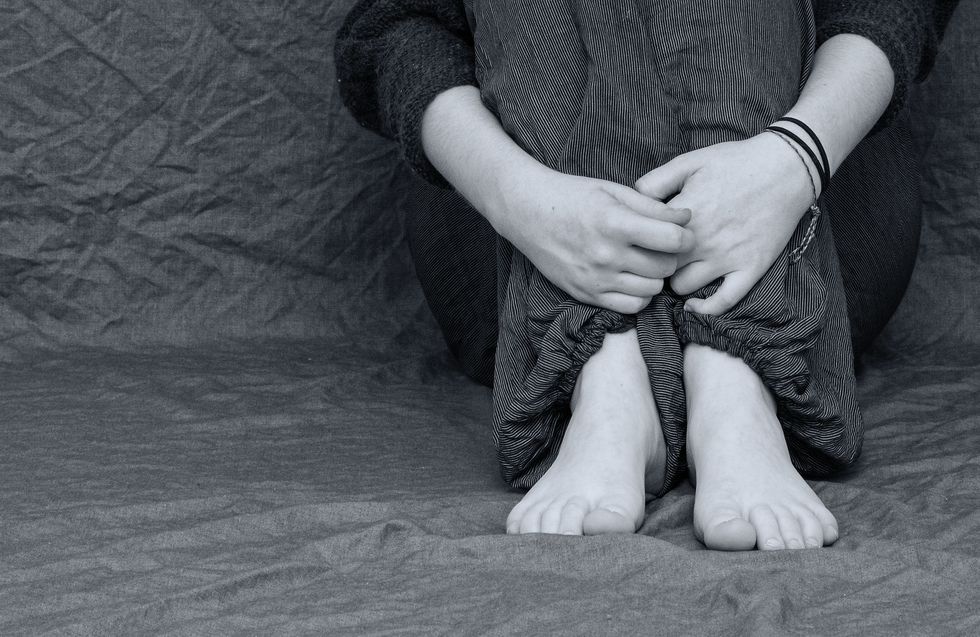It feels like every day a new celebrity, politician, or some other famous person is being accused of sexual assault.
Or, if not assault, then acting like a terrible person in general towards women (or whoever might be on the reciprocating end). All of this has been coming out in waves over the last few months, and it feels like someone just told you that the entire foundation of your house had mold in it.
But, just like mold, even though we’re finding this out all at once, this problem has been going on for a very long time (since probably the beginning of time). Only recently have victims felt comfortable speaking out about it.
Now we reach a roadblock, and one of the biggest reasons victims are afraid to say anything: victim blaming. How often do we hear the words “she’s lying,” or “where’s your proof?” or “there’s no way he could have done that”? Even if multiple people come forward and say that they were harassed or raped by someone, if he’s a famous man, people are going to be hesitant to believe it, let alone do anything about it and bring justice to the victim.
It’s horrible.
We’ve created a culture that protects the offenders and gives them infinite chances while shaming the victims who dare to speak out about the cruel things that happen to them and blacklist them forever.
At the core, we need to be better. We need to reinforce that it is not okay to harass people, to invade their private spaces, to make them feel like they are worth nothing. Instead of telling girls how not to be raped, tell boys not to rape people. Respect has become alarming low in our culture. It’s not that hard to treat someone as a human being.
In some ways, society is becoming less tolerant of sexual harassment. They’re little steps, but they’re encouraging. Broadcasters and actors are losing their jobs and facing consequences. Workplaces are implementing new policies to prevent harassment or assault in the workplace. It’s not a lot, but you have to start small to make any sort of progress.
Of course, there are some who are not on board with all of these cultural changes, who feel it will transform the world around them into something different from what they grew up with.
My dad is one of these people. During one conversation on this topic, he said, “Now I can’t even tell a woman that I work with that she looks nice today. I’m afraid of what will happen to me.”
Now, I know my father. He means well, he’s just trying to strike up a pleasant conversation and be nice to his fellow employees. He is not the problem. The problem is the men who take it one step further. My father will say those words casually and then move on to the next part of the conversation.
The problematic men will say those exact words with a hint of something else underneath and will continue to push even when it’s clear he’s making the woman uncomfortable.
Another concern of my father’s was that men can’t ask fellow employees out on a date or to dinner anymore. It’s not the asking out that’s a problem. It’s when that man acts entitled to a date or to something more and then berates the woman for rejecting him and feeling uncomfortable.
The actions themselves are not the problem.
Taking someone out to dinner is, on the whole, a pleasant activity. It’s the intent. It’s always the intent. It’s not that you can’t ask someone out, you just need to be able to handle rejection and know where the boundaries are.
Whenever some sort of sexual allegation story comes out and I hear someone start to victim-blame and claim that the woman was overreacting to just being asked out or whatever it was, I know there’s a whole part of the story that’s not being covered.
How many times was the man rejected before the assault occurred? How often was the advance made before the woman felt unsafe? There’s always more than what gets reported, and that’s the true problem in our culture.
Now, what can you do to not be a part of the problem?
Stop victim blaming. If someone, especially if it’s someone you know, comes out and says they were a victim of sexual assault, support them and be there for them. Don’t ask them what they were wearing or tell them how they could have acted differently. If it’s something you read in the news, don’t get all judgy.
Don’t even defend your favorite actors, because chances are you don’t actually know what type of person they are at all. When someone says they are a victim, there is an overwhelming chance that they are not lying.
In fact, there are even more people who say nothing because they are afraid of a culture that will just throw the blame back on them and tell them that they are wrong and worthless. Don’t contribute to that culture. Support them, listen to them, and stand with them.






 women in street dancing
Photo by
women in street dancing
Photo by  man and woman standing in front of louver door
Photo by
man and woman standing in front of louver door
Photo by  man in black t-shirt holding coca cola bottle
Photo by
man in black t-shirt holding coca cola bottle
Photo by  red and white coca cola signage
Photo by
red and white coca cola signage
Photo by  man holding luggage photo
Photo by
man holding luggage photo
Photo by  topless boy in blue denim jeans riding red bicycle during daytime
Photo by
topless boy in blue denim jeans riding red bicycle during daytime
Photo by  trust spelled with wooden letter blocks on a table
Photo by
trust spelled with wooden letter blocks on a table
Photo by  Everyone is Welcome signage
Photo by
Everyone is Welcome signage
Photo by  man with cap and background with red and pink wall l
Photo by
man with cap and background with red and pink wall l
Photo by  difficult roads lead to beautiful destinations desk decor
Photo by
difficult roads lead to beautiful destinations desk decor
Photo by  photography of woman pointing her finger near an man
Photo by
photography of woman pointing her finger near an man
Photo by  closeup photography of woman smiling
Photo by
closeup photography of woman smiling
Photo by  a man doing a trick on a skateboard
Photo by
a man doing a trick on a skateboard
Photo by  two men
two men  running man on bridge
Photo by
running man on bridge
Photo by  orange white and black bag
Photo by
orange white and black bag
Photo by  girl sitting on gray rocks
Photo by
girl sitting on gray rocks
Photo by  assorted-color painted wall with painting materials
Photo by
assorted-color painted wall with painting materials
Photo by  three women sitting on brown wooden bench
Photo by
three women sitting on brown wooden bench
Photo by 
 Photo by
Photo by  Photo by
Photo by  Photo by
Photo by  Photo by
Photo by 


 people sitting on chair in front of computer
people sitting on chair in front of computer



 all stars lol GIF by Lifetime
all stars lol GIF by Lifetime two women talking while looking at laptop computerPhoto by
two women talking while looking at laptop computerPhoto by  shallow focus photography of two boys doing wacky facesPhoto by
shallow focus photography of two boys doing wacky facesPhoto by  happy birthday balloons with happy birthday textPhoto by
happy birthday balloons with happy birthday textPhoto by  itty-bitty living space." | The Genie shows Aladdin how… | Flickr
itty-bitty living space." | The Genie shows Aladdin how… | Flickr shallow focus photography of dog and catPhoto by
shallow focus photography of dog and catPhoto by  yellow Volkswagen van on roadPhoto by
yellow Volkswagen van on roadPhoto by  orange i have a crush on you neon light signagePhoto by
orange i have a crush on you neon light signagePhoto by  5 Tattoos Artist That Will Make You Want A Tattoo
5 Tattoos Artist That Will Make You Want A Tattoo woman biting pencil while sitting on chair in front of computer during daytimePhoto by
woman biting pencil while sitting on chair in front of computer during daytimePhoto by  a scrabbled wooden block spelling the word prizePhoto by
a scrabbled wooden block spelling the word prizePhoto by 
 StableDiffusion
StableDiffusion
 StableDiffusion
StableDiffusion
 StableDiffusion
StableDiffusion









